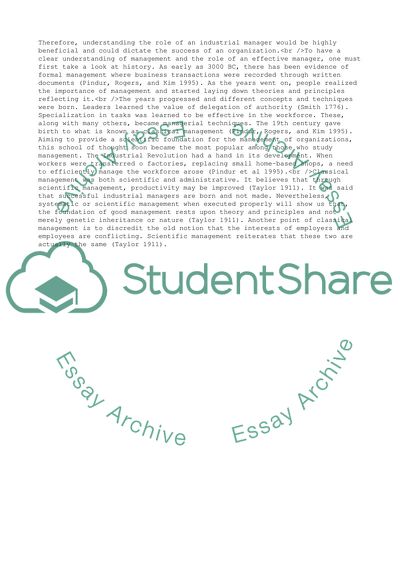Cite this document
(The Role of a Modern Industrial Manager Essay Example | Topics and Well Written Essays - 1750 words, n.d.)
The Role of a Modern Industrial Manager Essay Example | Topics and Well Written Essays - 1750 words. https://studentshare.org/management/1548850-the-role-of-a-modern-industrial-manager
The Role of a Modern Industrial Manager Essay Example | Topics and Well Written Essays - 1750 words. https://studentshare.org/management/1548850-the-role-of-a-modern-industrial-manager
(The Role of a Modern Industrial Manager Essay Example | Topics and Well Written Essays - 1750 Words)
The Role of a Modern Industrial Manager Essay Example | Topics and Well Written Essays - 1750 Words. https://studentshare.org/management/1548850-the-role-of-a-modern-industrial-manager.
The Role of a Modern Industrial Manager Essay Example | Topics and Well Written Essays - 1750 Words. https://studentshare.org/management/1548850-the-role-of-a-modern-industrial-manager.
“The Role of a Modern Industrial Manager Essay Example | Topics and Well Written Essays - 1750 Words”. https://studentshare.org/management/1548850-the-role-of-a-modern-industrial-manager.


